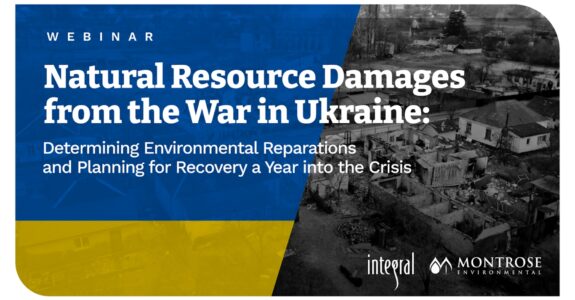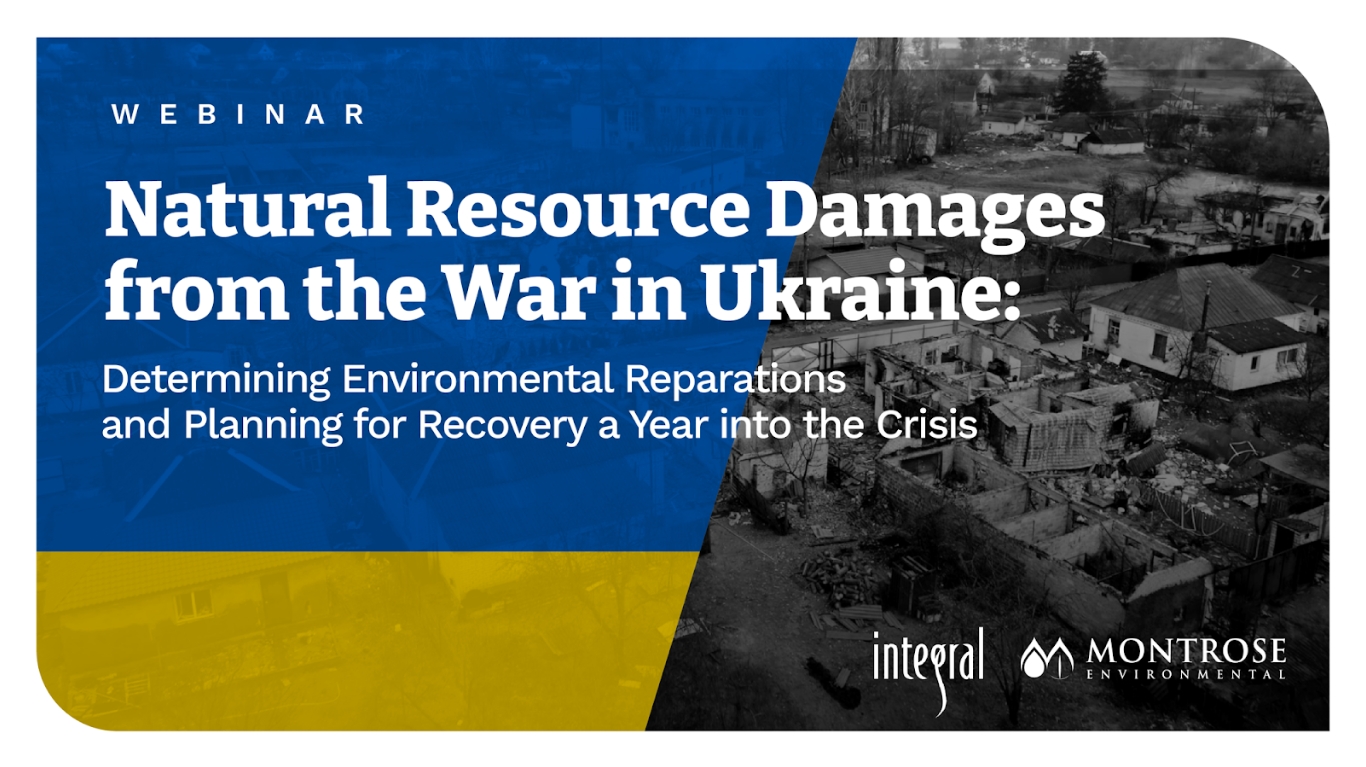
How do you evaluate resources if there is a permanent mass migration?
August 7, 2023
By: Richard Wenning, PhD and Ted Tomasi, PhD
How do you consider the value of resources if there is a permanent mass migration of war refugees in a certain area?
There are two issues here. One is determining the net effects of the war on resources. If, for example, there was mass migration out of an area, as well as greatly reduced economic activity, there may be a gain in some aspects of environmental quality, such as air pollution that (partially or fully) offsets the negative effects of increased sources of air pollution due to the war. So first, one needs to define the injury correctly. The second issue is the benefits of restoration. Establishing a baseline via primary and complementary remediation should result in a return of the population to baseline (and perhaps even net in-migration relative to baseline; that is, more people return to the country than were displaced). The return of displaced people may be a key indicator that the restoration of baseline conditions has been successful. From a compensatory standpoint, this is above a return to baseline. The benefits of compensatory restoration would accrue to that restored population.
That said, the migration or displacement of people from areas affected by the conflict in Ukraine is immaterial to the obligation to hold the responsible party accountable for the costs of actions to restore or replace the natural capital affected by a natural disaster, industrial accident, or conflict. The size of the population available to enjoy the benefits from recovered resources does not affect the obligation to repair injuries, regardless of whether the injuries specifically prompted the displacement of a portion of the population.
What’s next?
Our team will be exploring NRDA questions more deeply in this five-question blog series. Our goal is to help provide you with a better understanding of Natural Resource Damage Assessments and how the framework applies to the war in Ukraine. As always, we are here to answer any questions you may have. We look forward to helping you and your company achieve your NRDA goals and hope you tune in for our additional workshops and webinars.
5 Questions – Ukraine War and NRDA
Webinar: Natural Resource Damages from the War in Ukraine

Since the beginning of the war in February 2022, Ukraine’s land and water resources have been severely impacted by conflict. In this webinar, Dr. Tomasi and Dr. Wenning will explore a data-driven, science-based approach to estimating the restoration needed and its cost to compensate for the environmental impacts of war.
Presenters:
Richard Wenning, Ph.D., Senior Principal, Montrose
Ted Tomasi, Ph.D., Managing Principal, Integral Consulting
Blog Co-Authors
Richard Wenning, Ph.D.
Managing Principal
Mr. Wenning is an ecotoxicologist with 37 years of experience in environmental impact and ecological risk assessment. He has used decision analysis tools, such as net environmental benefits analysis (NEBA) and comparative risk and remedy alternatives analysis (CRA/RAA), to help companies and governments develop strategies to restore damaged aquatic and terrestrial ecosystems. He has worked on environmental assessments of major human-caused pollution incidents and natural disasters, such as the Deepwater Horizon oil spill in the Gulf of Mexico and Brazil’s Samarco mine tailing dam failure. Mr. Wenning also has experience working in regions across the world, including Asia/Pacific, Australia, Europe, the Middle East, and southern Africa.
Theodore D. Tomasi, Ph.D.
Managing Principal
Dr. Ted Tomasi has more than 30 years of experience as a natural resource economist, specializing in the valuation of natural resources and environmental changes, risk management in the context of use decisions regarding resource use, and benefit–cost analysis. Before beginning his consulting career, he served on the faculties of the University of Minnesota, the University of Michigan, and Michigan State University, where he taught and conducted research on environmental policy analysis, decision-making under uncertainty, and methods for valuing ecosystem services. Dr. Tomasi served as an advisor and economic expert for NOAA’s Damage Assessment Center and sat on expert review panels for the Type-A natural resource damage assessment (NRDA) model for both the Great Lakes and the coastal and marine environments. He has published numerous book chapters and peer-reviewed journal articles, and is a sought-after speaker in the area of environmental damage claims.









